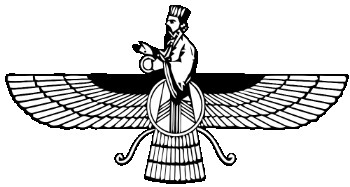THE Protestant Reformation was the movement of church renewal led by Martin Luther. It took place in the 16th century and began in Central Europe.
The Protestant Reformation was responsible for the creation of several churches, all of which declared themselves outside the authority of the Pope.
The decay of the various orders of the Catholic Church gave rise to the need for the creation of a reform in the Church. At that time, several priests were involved in illicit and mundane tasks and the sale of indulgences harmed many people. In addition, various elements of royalty wanted to dominate the Church and obtain its goods, in order to increase its power and influence. Furthermore, papal power had been radically reduced after the separation between Rome and Avignon (Avignon), and also due to the Curia Reformation, which displeased many Christians at the time, including John Wycliffe.
Later, some texts by Martin Luther, many of them against the practice of Indulgences, spread with great speed and highlighted the almost general discontent of the people. Luther's 95 Theses, posted on the door of the Church of Wittenberg Castle in 1517, are an essential document in the Protestant Reformation. Despite this, Luther did not consider himself a reformer, but trusted in the transforming power of the divine word.
Many elements of the nobility and clergy supported Luther's ideas, but initially had no intention of separating from the Church.
Several attempts were made to stop the Lutheran movement, including an imperial condemnation, and the Edict of Worms (in 1521) which banned Luther's texts and classified him as an enemy of the state. Several sovereigns supported Luther, many of whom did so not because they had the same beliefs, but had political interests in separating from the Catholic Church. Luther's theology quickly gained popularity among several German preachers, to such an extent that the liturgy was being changed.
The Protestant Reformation had to face several threats, among them the revolt of the peasants and the Anabaptists and the conflicts caused by the humanists, who together with Erasmus of Rotterdam broke away from Luther. Despite all this, between 1520 and 1530 the Reformation imposed itself and caused several changes in ecclesiastical regimes. Many Protestant groups that were threatened by Emperor Charles V united in 1531, and so the Emperor eventually declared religious freedom.
The Council of Trent, called for the purpose of restoring the Church's unity, was called too late, and it did not have the desired effect.
Ulric Zwingli implemented the Reformation in German Switzerland, while Calvin operated in French Switzerland, with a different point of view. The agreement between Luther and Zwingli was not possible due to different opinions regarding the doctrine of Eucharist.
Despite differences between the various created churches, all the important names in the Reformation stressed the importance of the Bible as an essential document of divine revelation. Furthermore, the Reformation was important in raising the awareness of priests and believers of Christianity's responsibility to the world.
counter-reform
the counter-reform, or catholic reform, was the response of the Catholic Church in relation to the Protestant Reformation, which took place in the 16th and 17th centuries.
The Protestant Reformation forced the Catholic Church to take action, and the Council of Trent was the main instrument for reorganizing Catholicism. This council was instituted by Pius V and Gregory XIII and aimed to revive the faith through a restructuring of religious discipline. Other means used by the Catholic Church were the Index of Prohibited Books (1543) and the Holy Office (1542). Through the counter-reform, the Catholic Church was able to regain some territories that had been "lost" to Protestant reformers.


